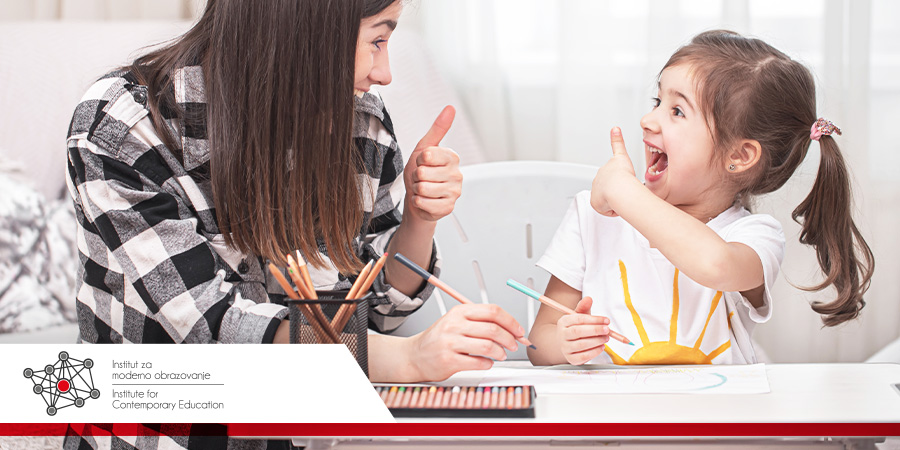Homeschooling vs Remote Learning
When I first heard these two terms, I was convinced that one was identical to the other. Therefore, I decided to Google it, expecting to see completely the same definitions. As I did further research, it dawned on me that I had been mistaken.
In fact, homeschooling and remote learning pose different methods of education, but both include a physical distance from a brick-and-wall institution. This is the reason they might seem to be equivalent in respect of their benefits and objectives.
However, being different in many other aspects, these two models have been disputed and compared to public schooling. So, many researchers have discussed their impact on children’s professional development and personal achievements, as well as their efficiency. The essential questions are: which of these two proves more valuable to make children more prepared for life? Which one provides higher exam scores and better social skills? It is definitely a tough and questionable call.
Facts
Get started with some similarities and discrepancies between homeschooling and remote learning.
As mentioned above, both are home-based (school at home) and a safe environment for children. However, the former is parent-led and the latter is teacher-led. Thus, homeschooling gives parents an opportunity to tailor school concepts to their children’s needs, whereas remote schooling adheres to a traditional school curriculum.
On the one hand, homeschooling means a one-on-one approach and a stronger parent-child bond as parents take the role of tutors and monitor their children’s work. On the other hand, remote learning is an online school where a group of students have online lessons run by a teacher. Logically, some would conclude that it is nothing short of public school attended from home.
Concerning academic achievements, homeschooling is more effective as it entails an individual approach that helps a student enhance their academic skills to the maximum.
Conversely, it is infeasible to acquire the same thing in remote learning, as it does not focus on only one student but the whole group put together. Subsequently, homeschoolers are superior to remote students as they have a tutor or a parent only for themselves, which yields better exam results.
With regard to independence as a significant social skill, remote learning has priority over homeschooling. Hence, homeschoolers are more dependent on their parents than remote students who rely more on their own abilities and capacities. Thus, remote students are independent individuals while the homeschooled might be overprotected and unprepared for life.
‘Cocoon’
Most people consider homeschooling a ‘cocoon’ for introverted children where they find a proper shelter from the outer world. Yet, this is the most common misconception. Much to my amazement, homeschoolers are provided with more socials than any other students, as they have more time for extracurricular activities. For instance, the homeschooled children go swimming or horse-riding, have music lessons, attend cinemas and theatres, which helps them socialize with other people.
It is probably because they have more freedom to organize their schooling than remote or traditionally-taught students.
Safe haven
Firstly, homeschooling certainly makes ‘different children’ feel more comfortable. In other words, children with some serious or slight defects are just on the safe side. Secondly, with or without physical or mental health issues, children are considered one of the most vulnerable groups and must be secure.
Therefore, homeschooling is a safe haven from possible unpleasantness and traumatic experiences such as bullying, abuse, maltreatment, peer violence or any other harm. Since most of us have witnessed it these days or went through this emotional turmoil as students, it is essential that parents have a choice and find the best solution for their children.
In that sense, remote learning can be helpful, as well due to the distance from a mass of other students. Nevertheless, it is only for children who are able to follow online lessons and interact with a teacher and other students via online platforms.
The choice is yours
In conclusion, given all of the above, both methods of education cater to children’s needs, capabilities, interests and lifestyles to a certain extent. Be that as it may, it is a matter of taste and expectations you have from schooling.
Tamara Petrovic, MA English teacher and IB/Cambridge specialist
 I studied English language and literature and did my Master’s thesis in A New Methodology of Teaching English to ESL Students. Shortly afterwards, I continued my professional development in the UK. I have completed a great deal of teacher trainings and run courses across England. I have participated in educational programmes such as: Advanced Methodology for Teachers, Teaching Unplugged, The Authentic British Language with History and Culture, IELTS courses, etc. I also attained ESL and IGCSE/IB licences, which makes me a certified Cambridge and IB specialist.
I studied English language and literature and did my Master’s thesis in A New Methodology of Teaching English to ESL Students. Shortly afterwards, I continued my professional development in the UK. I have completed a great deal of teacher trainings and run courses across England. I have participated in educational programmes such as: Advanced Methodology for Teachers, Teaching Unplugged, The Authentic British Language with History and Culture, IELTS courses, etc. I also attained ESL and IGCSE/IB licences, which makes me a certified Cambridge and IB specialist.
Moreover, as an international educator I have taken the role of speaker in many international conferences in order to showcase my inventiveness and upgrade the existing techniques in education. Hence, I have given my contribution to the educational world with great success for over a decade. Generally, I implement the new methods of teaching I constantly learn and research. As I am always determined to expand my horizons, I deal with various age-groups and bring a new twist to teaching. I also have a different approach to students due to my complete awareness of their diversity, which is another challenge to tackle. What helps me sail in teaching is my excellent interaction with both juniors and seniors alongside the utmost professionalism and enthusiasm at work.
In a nutshell, my major idea of teaching is teaching from the life, teaching English in correlation with other subjects and aspects of life. In the essence, my students come to knowledge by leaps and bounds since I apply inquiry-based and student-centred activities to enhance their academic and social skills. I also use state-of the-art digital tools as well as classical materials since the concoction of the two proves effective and valuable. Finally, what makes me fit for any educational institution is that I am infatuated with teaching and I find my vocation a great chance to handle either international or ESL curriculum and pursue innovations in the system of education.


 Srpski
Srpski





